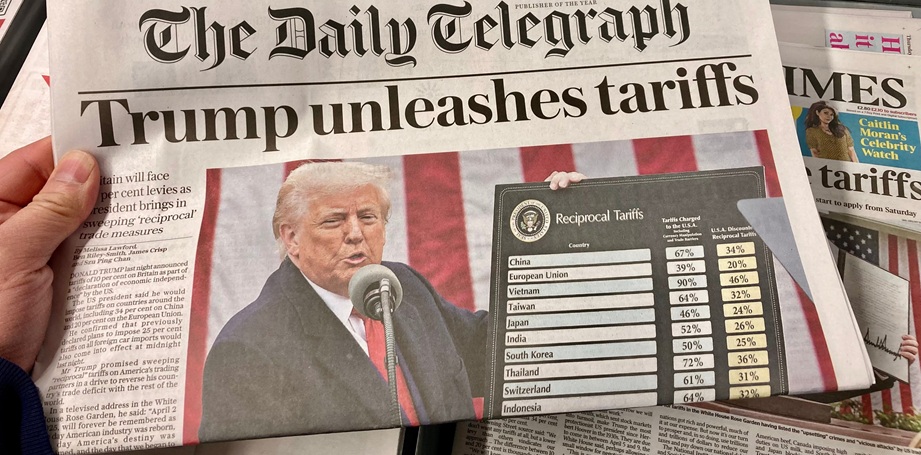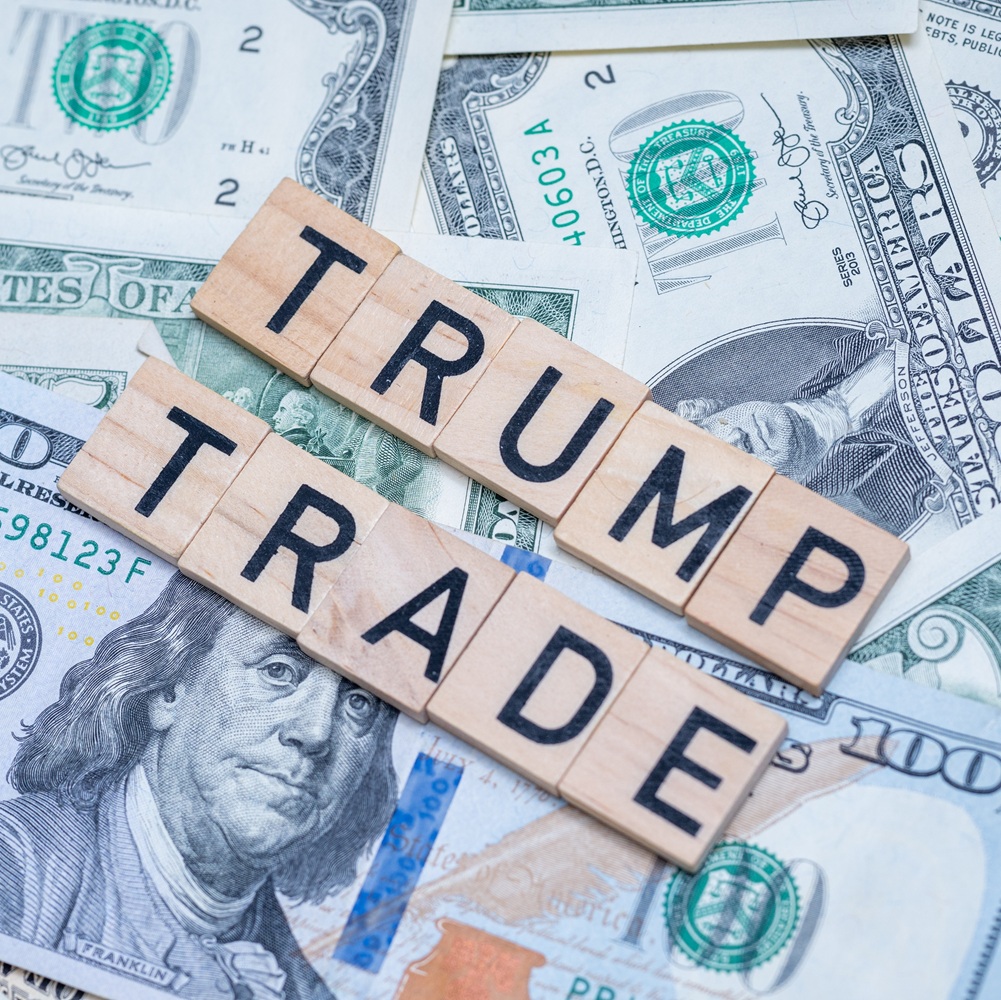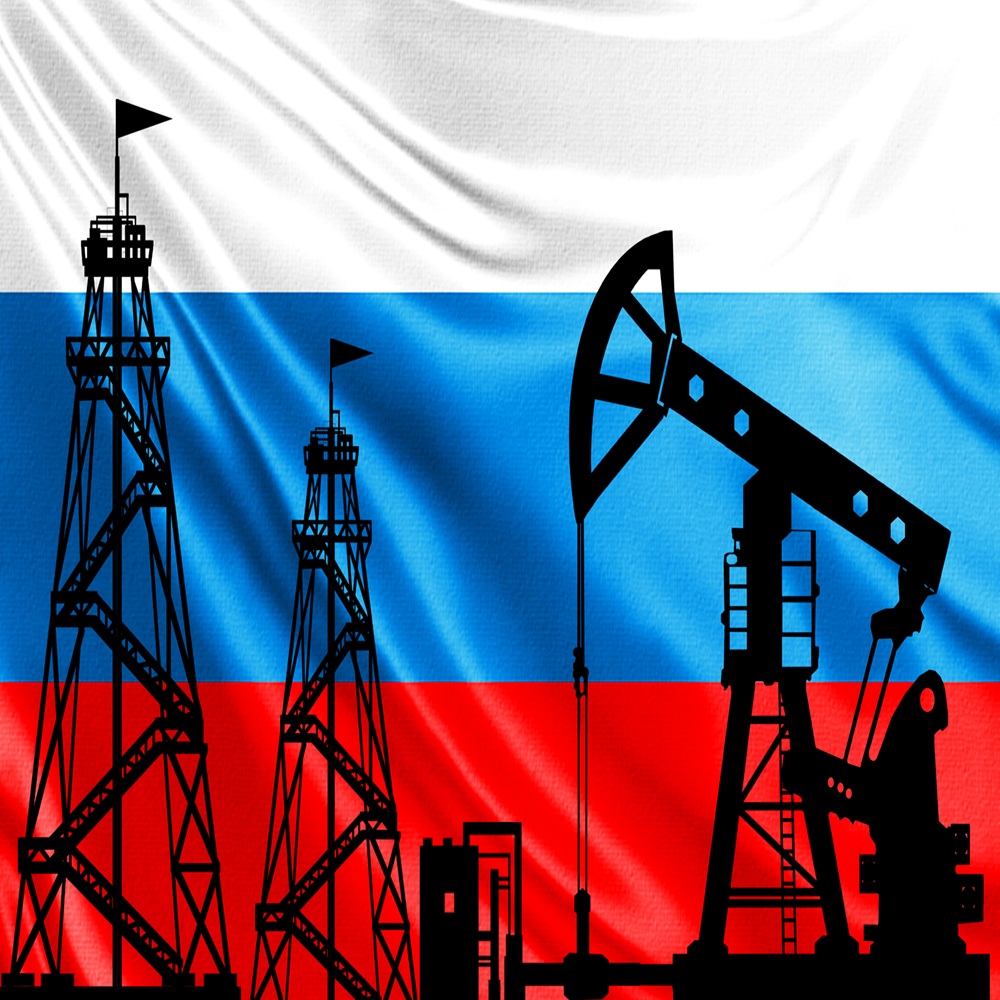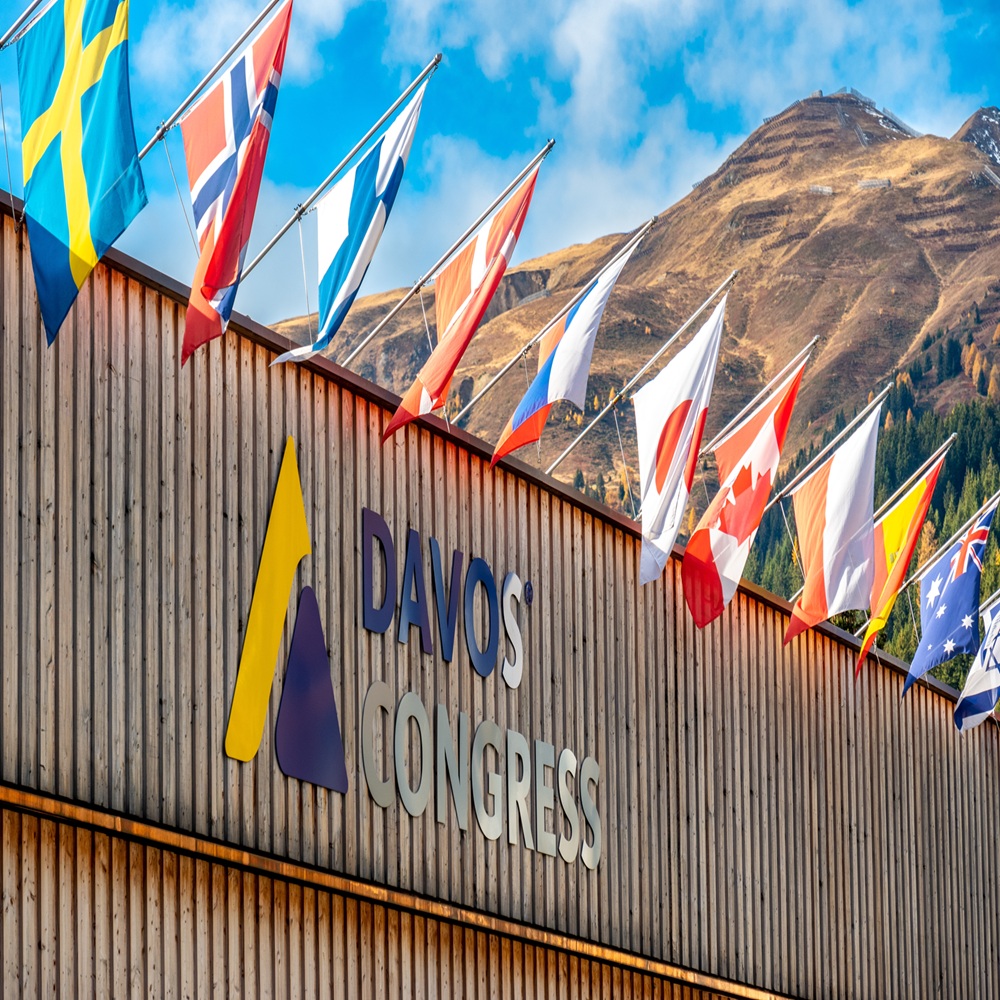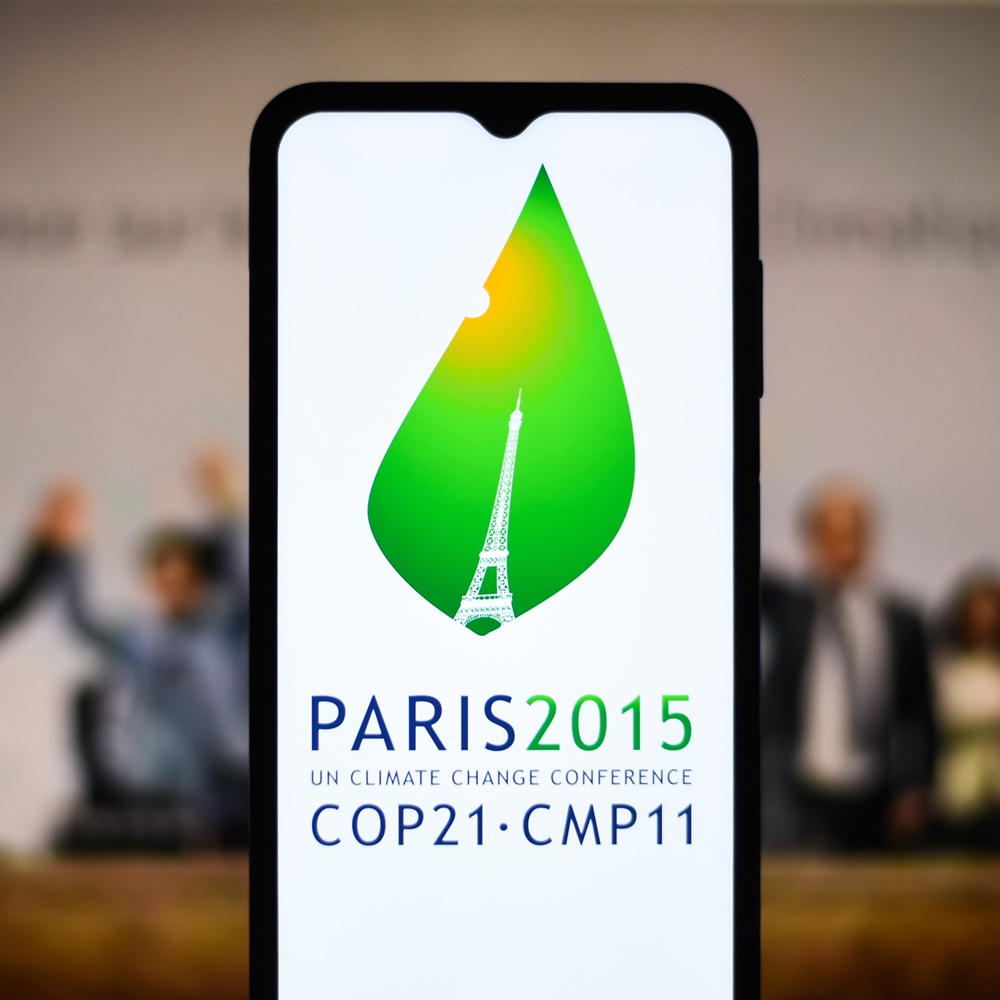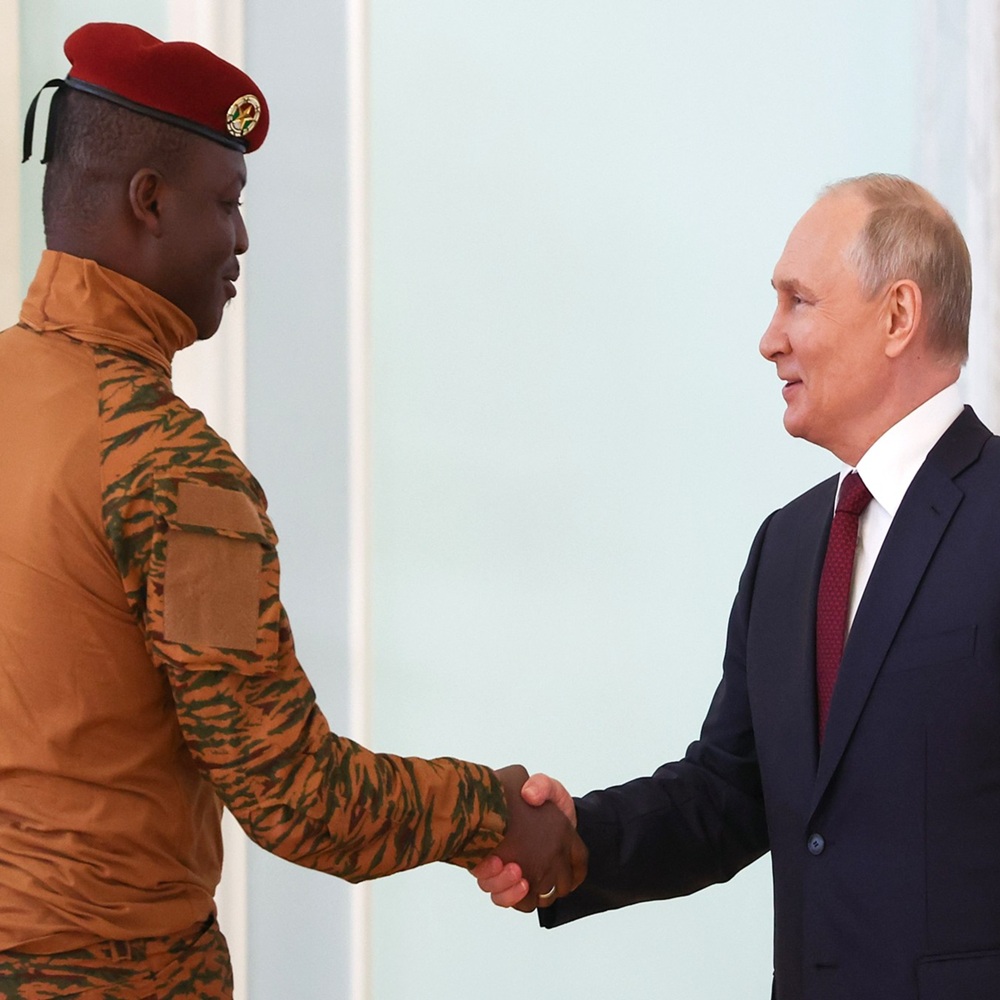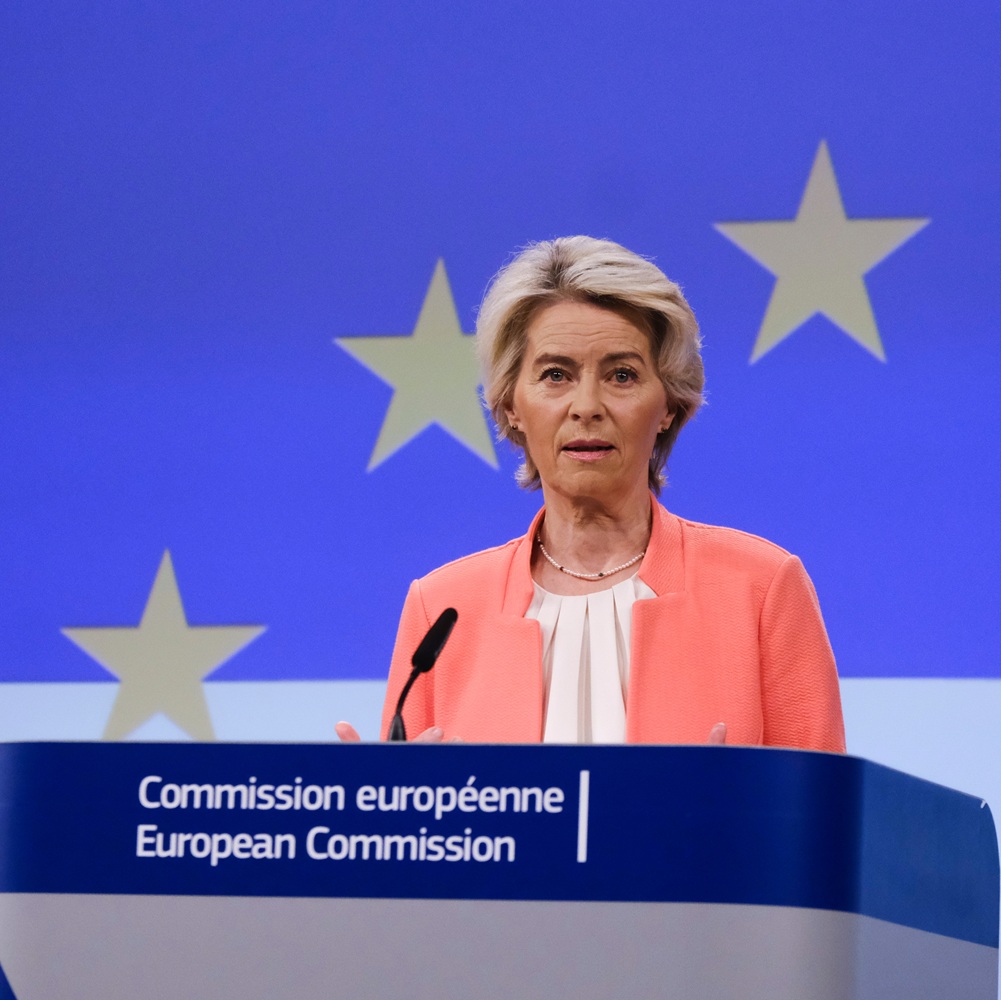
Diversification nations: The Gulf way to engage with Africa
by Corrado Čok , Maddalena Procopio
한국어로 읽기 Leer en español In Deutsch lesen Gap اقرأ بالعربية Lire en français Читать на русском Summary -The UAE, Saudi Arabia and Qatar have longstanding political and security interests in north and east Africa.- But the late 2010s saw a “geoeconomic turn” in their foreign policy. This has led the three Gulf states to make inroads into sub-Saharan Africa.- Energy and infrastructure are at the heart of this new economic involvement. These sectors serve Gulf interests, but they are also where Africa’s needs are greatest.- This is improving the image of Gulf states in Africa. This ties in with a trend among African governments to diversify their own international partners and foster competition among them.- The EU and its member states remain influential in Africa, but their involvement is declining. The Gulf expansion in Africa could exacerbate this—unless Europeans find a way to respond. The geoeconomic turn Africa is big business in today’s geopolitics and geoeconomics. “Great powers” have returned to compete on the continent, with rising powers like Turkey and Gulf monarchies snapping at their heels. African leaders, meanwhile, are capitalising on the fragmentation of the global order to foster competition among all these powers. In this evolving landscape, the United Arab Emirates, Saudi Arabia and to a lesser extent Qatar are looking beyond their traditional African interests. The three Gulf states have long extended their reach into east and north Africa. There, they have worked to secure land and trading routes, extract resources and project influence over their preferred versions of Islam. In so doing they have tried (and spent big) to empower friendly governments and political actors through a combination of diplomatic, economic and security-related assistance. This political-military posturing has often drawn them into competition with one another—for instance through their involvement in the conflicts in Yemen and Libya. The UAE has been by far the most assertive of the three states in this regard, with recent Emirati involvement in Sudan’s civil war prompting regional and international condemnation. Despite these political interests, the late 2010s saw a “geoeconomic turn” in the foreign policy of the Gulf powers. This has led them to make inroads deeper into Africa. The covid-19 pandemic and falling oil prices hit sectors crucial to these states economies: aviation, for instance, as well as tourism and logistics. These oil and gas producers also know that fossil fuels will be out of the picture at some point in the future, thanks to the global energy transition. With its booming markets and rich natural resources, sub-Saharan Africa brings opportunities for Gulf states to diversify their economies. Moreover, African governments offer them backing to pursue a dual approach to the energy transition: no pressure to lose the oil and gas right now (and Africa offers plenty of prospects in that regard) but opportunities also position themselves as leaders in sectors vital to future economies—from renewables to minerals. Such pragmatic engagement should guarantee Gulf states greater returns than costly security politics in their “near abroad”. This could all affect European interests in Africa, not least because the continent is also becoming a crucial partner for Europeans to sustain and diversify their own energy supplies. In our 2024 paper “Beyond competition” we examined the UAE’s involvement in African energy sectors, setting out how Europeans might mitigate the risks that poses and grasp the opportunities. This policy brief expands on that research. First, it breaks down the UAE’s, Saudi Arabia’s and Qatar’s geoeconomic activities in sub-Saharan Africa, zooming in on energy as a central focus of their strategy. Next, it analyses the divergences in the Gulf states’ economic expansion, and how these interact with their traditional African interests. Finally, it explains how Europeans should grapple with this emerging phenomenon. Africa and a fragmenting global order Over the past five years, economic and geopolitical turmoil has changed how big and rising powers compete in Africa—and how African countries relate to the rest of the world. This is the case for both political and economic engagement. Africa The African embrace of diversification reflects a broader movement within the global south that advocates a reimagined global order. Within this, a key demand is for equity, inclusivity and agency in global governance structures—indicating a deliberate pivot away from historical dependencies on Western-led models. This includes traditional frameworks of aid and development. This multipolar moment gained momentum as the tumult of the post-covid years and Russia’s invasion of Ukraine intensified. As Western states focused on economic and geopolitical upheavals closer to home, many African leaders saw neglect and self-centredness. This was exemplified in African criticism of Western vaccine hoarding, and then of the redirection of aid to Ukraine at the expense of African crises. So African leaders have increasingly sought out alternative partners. But these developments only exacerbated a more longstanding trend. From the early 2000s onwards, Western engagement with Africa has steadily declined. Other powers—such as China, Turkey and Russia—have expanded their influence. Indeed, Russia and China in particular have leveraged African aspirations and grievances against Western-led frameworks. This has helped them legitimise their political, economic and military projection in Africa. It could also open up space for stronger West-free alliances, such as through the BRICS+ grouping (which the UAE joined and to which Saudi Arabia was invited in 2024). Gulf The African embrace of multipolarity resonates with Gulf powers, which underpin their own foreign policy with an aim to cultivate partnerships across the east-west and north-south spectrum. Gulf states do not explicitly adopt anti-Western rhetoric. But, to address their domestic imperatives, they are strategically tapping into African governments’ call for alternative partners. The three states offer their African partners development cooperation and financing that depart from the Western model. They tend to offer a more flexible and rapid deployment of funding. Their state-backed economic models also align political agendas with strategic investments. This allows them to leverage their financial resources to fill the capital and political void left by other international players. Such alignment is timely and could be mutually beneficial as African and Gulf states navigate the shifting dynamics of global power distribution. It also seems to be boosting Gulf states’ political capital with African governments. But the monarchies’ strategic interests may not always line up with Africa’s long-term development goals, which could foster extractive and exploitative relationships. Their expansion in Africa could also reduce the space for Europeans to rebuild their ties with the continent. Europe Europeans maintain a significant presence in Africa. But the fragmenting global order could challenge their status, particularly in the face of the second Trump presidency and its implications for Western unity. European economic engagement in Africa has been declining for some time, just as Western governance, aid and financing models are meeting competition For now the EU remains sub-Saharan Africa’s largest trading partner, with trade flows between the two regions valued at approximately $300bn annually. Yet, the EU’s share of trade with sub-Saharan Africa has dropped significantly since 1990. This reflects competition from countries like China, whose rapid ascent is evident in its large increases of both imports and exports with the region. Indeed, China now rivals the EU in terms of imports to sub-Saharan Africa. Sub-Saharan Africa’s imports from China have grown especially in the consumer-goods sector, but also increasingly in the energy and other industrial sectors. The EU, meanwhile, continues to dominate in imports of high-value goods such as machinery, chemicals and vehicles. Sub-Saharan Africa exports primarily raw materials, minerals, and oil to Europe, akin to its exports to other regions, such as China and the Gulf countries. Emerging players like the UAE have witnessed a steady growth in their overall share (though percentages do not reach 10% of the total yet). Gulf-Africa (geo)economic relations on the riseInvestment and finance The scale of Gulf financial engagement in Africa underscores the monarchies’ expansion. In 2022 and 2023 the Gulf Cooperation Council states collectively funnelled nearly $113bn of FDI into the continent, exceeding their total investments over the previous decade ($102bn). The UAE, Saudi Arabia and Qatar are investing most in sectors that not only reflect their interests, but in which Africa’s needs are greatest: energy and climate and infrastructure It is the infrastructure (and connectivity) investments that form the backbone of their expansion. Interests among the states overlap, but the UAE invested first and by far the most in ports, logistics networks and special economic zones. Saudi Arabia is the main investor in roads. All three states have stakes in sub-Saharan Africa’s air connectivity, though Saudi Arabia to a lesser extent to date. These investments open up new opportunities across the continent. They also boost the Gulf states’ geostrategic presence, helping to fill a gap in Africa’s infrastructure that China has only partially filled over the last 20 years—while the EU is only now trying to launch a comeback with the Global Gateway. Moreover, Gulf states are helping to fill the funding gap that Western financiers left as they withdrew. In 2021, for example, the UAE pledged $4.5bn to support energy transition efforts in Africa. This financial commitment is meant to support green energy, infrastructure development and the wider energy transition. In March 2024, four Emirati banks helped the Africa Finance Corporation (AFC) raise $1.15bn in the largest syndicated loan ever pooled together by the AFC. Saudi Arabia, which has long provided development assistance to Africa through the Saudi Development Fund, signed a 2023 memorandum of understanding with the AFC to jointly finance infrastructure across the continent. In late 2024 the Saudi government pledged $41bn through a mix of financing tools to finance start-ups, provide import-export credit and spur private sector growth in Africa over the next 10 years. In 2022 Qatar pledged a $200m donation for climate adaptation projects in African countries vulnerable to the impacts of climate change, including funding for drought and flood mitigation programmes, as well as renewable energy access in off-grid communities. In 2024 it contributed to the creation of Rwanda’s Virunga Africa Fund I, launched with $250m to strengthen social services and private sector growth in innovative domains in Rwanda and the rest of Africa. However, many of the investments and deals are opaque and come with limited accountability. This raises questions about whether Gulf-Africa financial and investment partnerships will truly be mutually beneficial. The balance of power often tilts in favour of the Gulf monarchies due to their financial strength, which may lead to asymmetrical outcomes—including a potential increase of debt burdens in Africa. Despite focusing on critical sectors for Africa’s development, these investments may not shift the underlying dynamics of extractivism that have historically characterised Africa’s relations with external players. As the trade data clearly show, this includes the Gulf states. Trade The UAE’s foreign policy has long been more focused on trade than that of the other two Gulf states. Accordingly, trade (including those goods it re-imports and exports via its economic zones) between the UAE and sub-Saharan Africa has grown robustly over the past decade. Qatar and Saudi Arabia, meanwhile, have seen more limited change. The UAE ventured early into trade, logistics and services to secure sustainable revenues—particularly Dubai, an emirate with very limited oil reserves. Emiratis have undertaken extensive expansion of port and transport infrastructure across Africa (led by logistics giants such as the Dubai-based DP World and, more recently, Abu Dhabi Ports). This has helped turn the UAE into a trade gateway between Africa and the world. The composition of Gulf-Africa trade reveals deeper dynamics in the economic relationship. In line with their global trading patterns, fuels and hydrocarbon derivatives dominate Emirati, Qatari and Saudi exports to sub-Saharan Africa. This reflects the centrality of fossil fuels in Gulf states’ expansion in the continent. The population of sub-Saharan Africa is rapidly growing; the region is also industrialising and urbanising at pace. The whole of Africa’s energy demand will likely increase by 30% by 2040—including fossil fuels. This creates new markets for Gulf states in sub-Saharan Africa. Sub-Saharan African exports to the Gulf, meanwhile, are largely made up of metals and minerals, including gold, as well as agricultural products. This underscores how the export relationship is largely extractive. Gold trade is particularly notable in the sub-Saharan Africa-UAE relationship, helping consolidate the country as a key global importer and refiner of the precious metal. These trade patterns highlight mutual dependencies but also expose structural imbalances. Sub-Saharan Africa’s export profile—heavily skewed toward raw commodities—limits its benefits to African states, while Gulf countries capitalise on higher-value imports and exports. Energy diplomacy and the green transition Africa’s vast natural resources mean the continent is central to the global energy transition. Alongside reserves of oil and gas, it boasts plentiful minerals essential for renewable technologies (such as lithium, cobalt and rare earth elements), abundant solar energy potential, and well-preserved forests for carbon offset. This, combined with the region’s large and increasing energy demand, helps centre energy and climate in the Gulf’s African expansion. A rapid transition away from fossil fuels is unrealistic for the Gulf states, given their reliance on them for export revenues and GDP. In Africa, meanwhile, oil and gas still account for 40% of energy consumed by end users (its final energy consumption). As discussed, this creates new markets for Gulf states in which they can help meet Africa’s current and future demand. But Africa also acts as a gateway to new energy value chains. Gulf leaders know the hydrocarbon era is waning. This means they could lose the leverage oil and gas brought them in global energy governance. To maintain their relevance, they aim to lead in green economies too. They therefore work to integrate Africa’s energy markets and resources into their broader strategy for sustainable economic transformation. Hydrocarbons Gulf countries’ economies are betting on African governments’ interest in further exploiting their oil and gas resources to increase revenues and fulfil growing demand. Saudi Arabia and the UAE are mostly eyeing investments in distribution (downstream), and transportation and storage (midstream); while they have traditionally shown limited interest in Africa’s oil and gas exploration and production (upstream). Qatar, by contrast, is more focused on exploring upstream production and increasing its stakes in Africa’s LNG sector. This aligns with Qatar’s unique energy profile as a leader in the global LNG market. It also gels with its long-term strategy to consolidate global dominance in natural gas, especially as the energy transition increases demand for cleaner-burning fuels like gas. The UAE might be eyeing Africa’s LNG sector as well, as it expects natural gas to contribute more significantly to its energy mix by 2050, but currently relies on Qatar for nearly one-third of its supply. Africa may prove helpful in expanding gas investments. Emirati energy giant Abu Dhabi National Oil Company, for example, has a stake in Mozambique’s Rovuma LNG project and a gas deal with BP in Egypt. African countries find common ground with the Gulf states in resisting the rapid phase out of oil and gas advocated by advanced economies. For African nations, oil and gas remain vital sources of revenue, industrial growth and energy security; Gulf states need these resources as they are integral to their global influence and economic diversification efforts. This challenges the European position on oil and gas, and their reciprocal alignment could cement stronger consensus around a dual approach to the energy transition. Green value chains The UAE’s “We the UAE 2031” vision and Saudi Arabia’s “Vision 2030” are economic reform plans that include commitments to diversify their economies away from hydrocarbons. This underscores their leaders’ recognition that fossil fuels may not be around forever, but mainly that green value chains hold great value. The UAE and Saudi Arabia (but much less so Qatar) are therefore investing in the green energy transitions, both at home and abroad. Their investment also allows them to maintain their influence in global energy decision-making, including the speed and pathways to a net-zero world and economy. With its abundant solar and wind resources, sub-Saharan Africa is an ideal testing ground for Gulf countries to expand their renewable energy expertise. It is also an environment in which they can develop scalable projects and build exportable green technology capacities. All three Gulf states are investing in solar and wind plants across sub-Saharan Africa. They have also shown appetite in other renewable fields, such as batteries, green hydrogen and thermal energy. The UAE leads in this through its companies Masdar and AMEA Power; Saudi Arabia’s ACWA Power is also getting in on the act. Qatar has been eyeing opportunities for investments, though it favours joint or brownfield investments in large foreign companies’ projects to limit risks and costs. Though several of these commitments are today pledges, their involvement could potentially contribute to expanding access to energy in Africa, helping address the continent’s critical energy deficit. Their dual-track approach to the energy transition allows them to advocate for a pragmatic transition that balances decarbonisation with energy security and economic development, enhancing their reputation among African governments as forward-thinking states on energy. Critical minerals At the same time, the UAE and Saudi Arabia are investing in mineral value chains. This underlines the strategic importance of these resources in their economic diversification and technological ambitions. Gold is the top import product from Africa to the UAE. But other minerals such as copper also rank high in Emirati imports—and in those to Saudi Arabia as well. These minerals are the backbone of the green economy. They are also critical for the digital transformation (including AI and defence, with the UAE eyeing dual-use minerals as it develops its national defence industry), but also infrastructure. In line with its trade-focused foreign policy, the UAE is seemingly more interested in tapping into the trade of these commodities. Saudi Arabia, meanwhile, seems keen to access raw resources for import, necessary to boost its industrial ambitions at home. Under Vision 2030, Saudi Arabia aims to develop domestic manufacturing and high-tech industries, such as electric vehicles and renewable energy technologies. Accessing African minerals aims to support this strategy by providing the necessary input for domestic production, and enabling Saudi Arabia to move up the value chain. For African countries, the global race for critical minerals is a unique opportunity to move beyond their traditional role as providers of raw commodities. Many African governments recognise the potential of these resources to catalyse industrialisation, create jobs and generate more value domestically. This shift in perspective has led to increasing demands for investments that prioritise local processing and manufacturing rather than merely extracting and exporting raw materials. However, the extent to which Gulf players will align with these aspirations remains uncertain. Where the Gulf states diverge Despite some similar drivers, Emirati, Saudi and Qatari approaches in Africa vary significantly. The nuances stem from the states’ different domestic imperatives and foreign policy strategies. Although the shift to geoeconomics is clear, this underlines how the three states—especially the UAE—could still influence security across the continent as well as in their traditional regions of interest. Country profiles The UAE lacks significant domestic industrial capacity (except for the gold sector). This means it needs bigger and better trade routes to secure its revenues. Here, Africa’s expanding consumer markets and its centrality in green value chains offers an opportunity. Abu Dhabi adopts a risk-prone, largely state-backed, approach—though this is mitigated by a strong orientation towards economic returns. The UAE’s presence is becoming increasingly entrenched across the African continent. Despite focusing outwardly on economics, the UAE’s ability to leverage political influence to safeguard its interests has not gone away, as its involvement in Sudan shows. This politico-security approach is less visible in other parts of Africa, though it remains a tool that could shape Emirati-African relations in the years ahead. As the UAE’s economic interests expand in Africa, its leaders may find they have more to protect—which could increase the risk of them deploying the security approach. The UAE’s energy diplomacy reinforces the idea that the country’s involvement in Africa will extend beyond economic ventures: the 2024 COP28 climate conference in Dubai, for instance, laid bare Emirati ambitions to position the UAE as a global leader in the energy transition. African alignment with the monarchy on the need for a dual approach makes Africa a key arena for Abu Dhabi to mobilise consensus. Saudi Arabia faces urgent domestic socio-economic imperatives linked to a growing population (largely under the age of 25) and high unemployment rates. This contrasts with the UAE and Qatar, which grapple with a shortage of domestic workforce. Africa is therefore appealing as a contributor to Riyadh’s economic transformation programme, which envisages a strong diversification of the economy. Green value chains rank high amid these efforts. But internal socio-economic constraints and the urgency of domestic reforms have prompted Riyadh to adopt a risk-averse stance. This has resulted in cautious and geographically limited engagement across the African continent. This caution contrasts with Riyadh’s more interventionist posture in the 2010s in the near abroad. Its aggressive policies to gain allies on the African side of the Red Sea strained rivalries with its neighbours. This included, for instance, the monarchy’s war against Houthis in Yemen from 2015, and its interference that contributed to the ousting of Sudan’s president Omar al-Bashir in 2019. Saudi Arabia now relies more on soft power and economic diplomacy, leveraging its traditional leadership of the Muslim world and development aid to advance its influence. This has led it towards a new approach largely oriented towards stabilisation—especially in the Horn of Africa—and multilateral dialogue. Yet, as Riyadh seeks to balance economic imperatives with geopolitical caution, its engagement in Africa remains transactional. Today, it is driven by immediate strategic needs rather than a long-term vision. Qatar, unlike the UAE and Saudi Arabia, is less constrained by energy transition-related pressures. Its reliance on gas provides Doha with greater economic stability (albeit vulnerable to overdependence on gas for revenues) and a competitive edge in the global energy market. Qatar has not to date significantly changed its approach to Africa, which is characterised by a focus on selective, strategically significant investments that hold both political and economic relevance. These targeted initiatives aim to strengthen bilateral ties in key sectors rather than pursuing broad-based engagement. This restraint is a reflection of Doha’s limited institutional knowledge of Africa and an overall risk-averse foreign policy, which often leads to it to engage in brownfield investments rather than expand into new ventures. Qatar, similar to Saudi Arabia, pursues a soft-power approach to political affairs on the continent. This is characterised by a strong emphasis on conflict mediation. It has played key diplomatic roles in past negotiations, such as in the Darfur conflict, the Eritrea-Djibouti border dispute and Somali reconciliation efforts. More recently, in March 2025 it hosted mediations between the Democratic Republic of Congo and Rwanda, managing to bring both sides to the table where other negotiators failed. This approach aims to enhance its global standing as a facilitator of dialogue and peace. Its Africa strategy is a balancing act between economic priorities and broader diplomatic ambitions. What this means for Europe The EU and its member states will have to work with Gulf states in Africa. If they fail to do so, their political and economic decline on the continent could accelerate. This would also likely open up space for power blocs such as Gulf-China and Gulf-Russia partnerships to deepen their relations with African countries. But a lack of engagement with Gulf states also means Europeans would miss out on opportunities. Crucially, Europeans could benefit from collaboration with Gulf powers to align with African governments in shaping reciprocal green industrial transitions. These risks and opportunities stem from the strengths and weaknesses of Gulf states’ involvement in Africa. These features also create synergies between Europe and Gulf states in Africa. The EU and its member states can add unique value to sectors vital to Gulf states’ interests, which could help mitigate the risks both sides face. Gulf countries, for example, would benefit from European technological know-how and innovation in sectors such as renewable energy. Moreover, Europeans have extensive experience and interest in human capital development; Saudi Arabia’s and Qatar’s soft-power approach means they have a growing interest in providing education and training. This could combine to help build the skilled and educated workforce that Africa’s rapid development and industrialisation requires. More synergies exist in Europeans’ longstanding political and institutional presence across Africa, as well as their focus on regulatory frameworks and experience dealing with African markets and governance structures. This could all be of use to the less Africa-experienced Gulf countries, helping to minimise their exposure to political and economic uncertainties. Europeans would gain reciprocal benefits through access to Gulf states’ financial resources, their capacity to roll out large scale projects, and their work to expand connectivity. The monarchies are also building greater influence in forums such as the UN and the G20, and more specifically in the energy sector (the COP climate conferences, for example, but also Saudi Arabia’s Future Minerals Forum). Through this, Europeans could leverage their relations with Gulf states in Africa to respond to the demands of the global south for equality in global governance. This would not only bolster Europe’s role in Africa’s sustainable growth but also help Europeans maintain a competitive edge in the evolving global energy and geoeconomic landscape. African governments would also benefit. Cultivating a diverse range of international partners lies at the heart of their newly enhanced bargaining geopolitical and economic power. This means that fostering Europe-Gulf cooperation could be vital for Africans to mitigate the risks of a declining European presence and the expanding (but still nascent) expansion by Gulf states. How Europeans should respond Initially, the EU and its member states should focus on four opportunities for cooperation with Gulf and African states. 1.Energy cooperation and access. The growing presence of Gulf states in Africa’s energy transition means Europeans can help improve access to (clean) energy across the continent. Gulf states are investing in power-generation projects and transport networks. These could enhance Africa’s economic growth, contribute to its market expansion (also through regional integration), and make the continent more attractive for other investors. Europe’s technological expertise in renewable energy complements the Gulf states’ investment capabilities and ambitions in this sector. a.Opportunity: Europeans should consider joint investment with Gulf states in Africa’s renewable energy projects. The UAE’s Masdar and Saudi Arabia’s ACWA Power can roll out large-scale renewable projects. European governments and companies would benefit from collaboration with such companies and with African governments, not only to help boost Africa’s renewable capacity but also to reduce the risks and costs of investment. For example, the government of Mauritania is already collaborating with the UAE’s Infinity Power and the German developer Conjuncta to develop a 10 gigawatt green hydrogen plant in the country. European energy companies should also leverage Qatar’s risk-aversion and interest in reducing risks via partnerships to expand their operations (as hinted at in a 2024 deal between Italy’s Enel Green Power and the Qatar Investment Authority). b.Risk: If Europeans do not take up such opportunities, Gulf countries could end up dominating Africa’s renewables sector. Their involvement in the continent’s energy market expansion may prioritise Gulf-centric policies over European or African climate and energy as well as industrial interests. Without a stronger European presence, Europe risks missing opportunities to contribute shaping Africa’s energy landscape in a way that aligns with both European interests and global climate objectives. 2.Cross-regional infrastructure development. The Gulf states’ investment in infrastructure and regional connectivity mean Europeans could help boost Africa’s economic growth and stimulate investors’ interest. Given the sheer scale and complexity of these projects, trilateral cooperation would help distribute costs, risks and expertise. By proactively collaborating with Gulf states, in particular the UAE and Saudi Arabia, Europeans can secure a role in Africa’s infrastructure transformation. This would help them ensure that major projects also align with European trade interests and long-term strategic priorities. a.Opportunity: The EU and member states should cooperate with Gulf and African states on infrastructure, focusing on the UAE’s maritime and logistics capabilities and Saudi Arabia’s substantial infrastructure investment. This would enable them to accelerate critical projects, from roads to power plants and energy distribution systems. Europeans should also collaborate with Gulf and African states on cross-regional railways. Trilateral cooperation on such initiatives as the “Lobito Corridor” (linking Angola, DRC and Zambia) would contribute to the development of high-impact infrastructure that no single state could easily undertake alone. b.Risk: If Europe does not do this, it risks being sidelined from new trade corridors and supply chains that will shape the continent’s economic and geopolitical landscape. Control over critical infrastructure—ports, railways, logistics hubs and energy networks—is a vital tool of geoeconomic influence, determining who facilitates and benefits from Africa’s economic growth. If Europe remains passive, Gulf and other external actors could shape Africa’s infrastructure in ways that reduce European access, limit European firms’ market participation and weaken Europe’s overall influence on regional economic integration. 3.Capacity building and human capital development. Africa’s rapid development requires an educated and skilled workforce. Saudi Arabia and Qatar have a growing interest in education and vocational training, an area in which Europeans have extensive experience. This is another potential area for trilateral cooperation. a.Opportunity: The EU and member states should collaborate with African and Gulf countries to launch joint capacity-building initiatives. Europeans would bring a unique contribution to these efforts through their experience in advanced training models, institution-building and regulatory frameworks. Moreover, African countries should proactively coordinate new Gulf efforts with European know-how, particularly in vital sectors such as energy and infrastructure. b.Risk: Inaction from European and African governments could mean Gulf-led training programmes shape Africa’s workforce according to the monarchies’ strategic priorities. This risks limiting European influence in Africa’s future development. It could also compromise European access to a skilled African workforce—essential to ensure foreign investors can ensure they meet African demands for local content. 4.Financial instruments and investment mechanisms. Africa’s development requires significant capital inflows, but investors often see the continent as high risk. The Gulf states’ growing role as both a financier and developer of Africa’s energy infrastructure presents opportunities for joint de-risking strategies. This would help both European and Gulf investors to overcome these risks. By pooling resources and expertise, Europe and Gulf countries can expand the capital available to fill Africa’s financing gaps—particularly for large-scale energy and infrastructure projects. a.Opportunity: European financial institutions should work with their African counterparts and Gulf investors and developers to de-risk their investment in Africa. This should include, for example, the European Investment Bank and European Bank for Reconstruction and Development, but also member states’ development banks such as the KfW (Germany) or Cassa Depositi e Prestiti (Italy). Such collaboration would help them de-risk investments and roll out large-scale infrastructure and energy projects, or scale up existing ones. This collaboration would appeal particularly to risk-averse countries such as Saudi Arabia and Qatar. b.Risk: Without this, Gulf investors could increasingly dominate Africa’s investment landscape. This shift could result in financial structures that, while effective for Gulf interests, may not align with European business practices, regulatory standards or long-term sustainability goals. That would likely result in European companies facing a more competitive and opaque investment environment. It could also erode Europe’s ability to promote investments that meet both Africa’s needs and European objectives. These four initial opportunities could act as a testing ground for trilateral cooperation. This, in turn, may create new synergies between all three parties. Europeans would then be well placed to build on this initial engagement to safeguard its geopolitical and geoeconomic interests in Africa; while developing new partnerships with rising powers that may benefit Europeans well beyond the continent. Acknowledgements We would like to thank the Bill and Melinda Gates Foundation for their generous support that allowed us to organise workshops and conduct extensive research and travel. We are immensely grateful to Kim Butson, our editor, for helping us keep a clear direction, and for her unwavering patience especially in the last editorial phases. And to Nastassia Zenovich for giving such a great visual shape to our ideas. We are also very thankful to the entire ECFR Africa and MENA teams’ colleagues for regular brainstorming and helping us challenge our assumptions. Last but not least, this paper would not have been possible without the many officials, diplomats, experts and thinkers in Europe, Africa and the Gulf, who generously dedicated their time and ideas, contributing significantly to shaping this project.This article was first published by the European Council on Foreign Relations (ECFR) [here].









